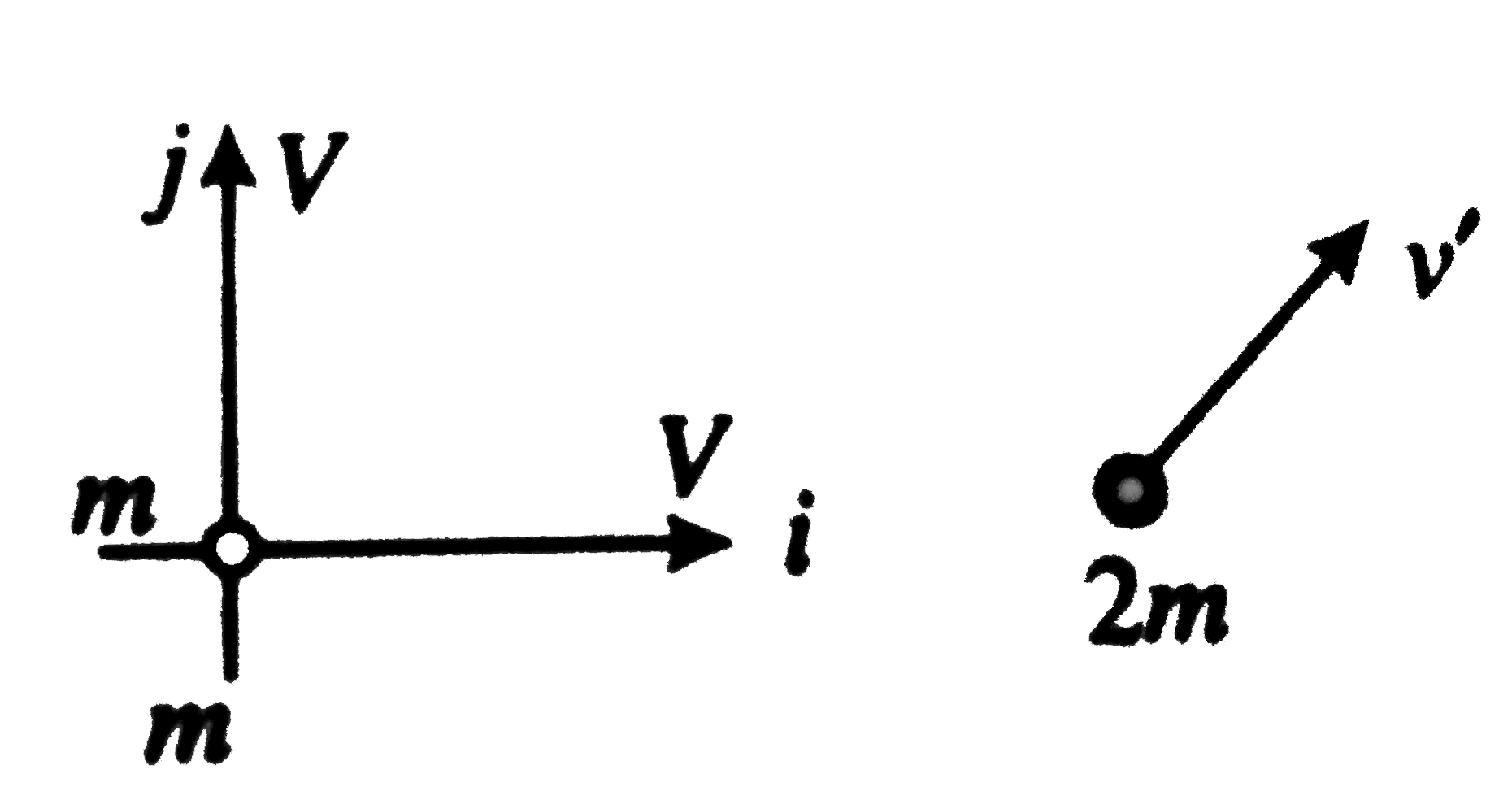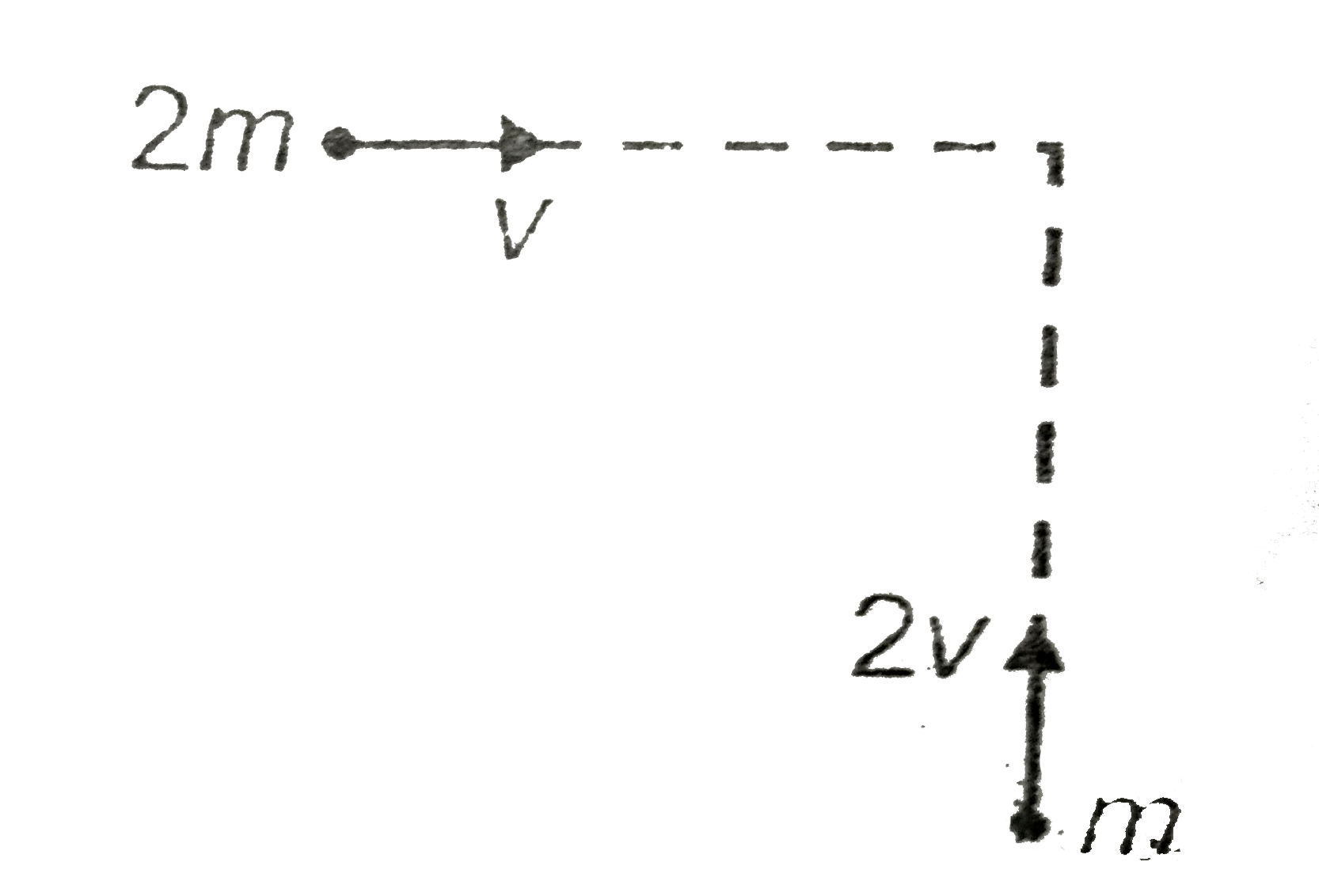Two identical particles collide in air inelastically. One moves horizontally and the other moves vertically with equal speed just before collision. The fractional loss in kinetic energy of the system of particles is equal to
1√2
12
√32
none of these
The correct Answer is:B
Conservation of linear mometum yields
mvˆi+mvˆj=(2m)→v

⇒→v'=v2(ˆi+ˆj)=v'=v√2
η=1−KEfKEi=1−(1/2)(2m)v'2(1/2)mv2+(1/2)mv2
⇒η=1−(v'v)2=1−(1√2)2=12
Topper's Solved these Questions
- CENTRE OF MASSBOOK - CENGAGE PHYSICSCHAPTER - CENTRE OF MASSEXERCISE - Multiple Correct
25 Videos
- CENTRE OF MASSBOOK - CENGAGE PHYSICSCHAPTER - CENTRE OF MASSEXERCISE - Assertion - Reasoning
2 Videos
- CENTRE OF MASSBOOK - CENGAGE PHYSICSCHAPTER - CENTRE OF MASSEXERCISE - Subjective
23 Videos
- CALORIMETRYBOOK - CENGAGE PHYSICSCHAPTER - CALORIMETRYEXERCISE - Solved Example
13 Videos
- DIMENSIONS & MEASUREMENTBOOK - CENGAGE PHYSICSCHAPTER - DIMENSIONS & MEASUREMENTEXERCISE - Integer
2 Videos
Similar Questions
Two particles of mass 2m and m moving with speed v and 2v respectively perpendicular to each other collides perfectly inelastically, then

Loss in kinetic energy of the system
View SolutionA particle moving with kinetic energy E makes and head on elastic collision with an identical particle at rest. Durig the collision
View Solution
Knowledge Check
Two identical discs are moving with the same kinetic energy. One rolls and the other slides. The ratio of their speeds is:
A1:1B√2:√3C2:3D1:2A moving neutron collides with a stationary α - particle . The fraction of the kinetic energy lost by the neutron is
A1625B925C35D25A completely inelastic collision is one in which the two colliding particles
AAre separated after collisionBRemain together after collisionCSplit into small fragments flying in all directionsDNone of the above
In the previous problem find the loss of kinetic energy of the system during collision if the particles are moving unidirectionally.
View SolutionA relativistic particle collides inelastically with an identical stationary particle. What are the internal and the kinetic energies of the resulting object? The kinetic energy of the particle before the collision is K=eφ where φ is the potential of the accelerating electric field. Do the calculations for protons with kinetic energies of 10 GeV and 76 GeV.
View SolutionTwo identical particles move --------- to eachother after elastic collision in two dimensions.
View SolutionA completely inelastic collision is one in which the two colliding particles
View SolutionThree identical particles are located at the vertices of an equilateral triangle. Each particle moves along a meridian with equal speed towards the centroid and collides inelastically.
View Solution
